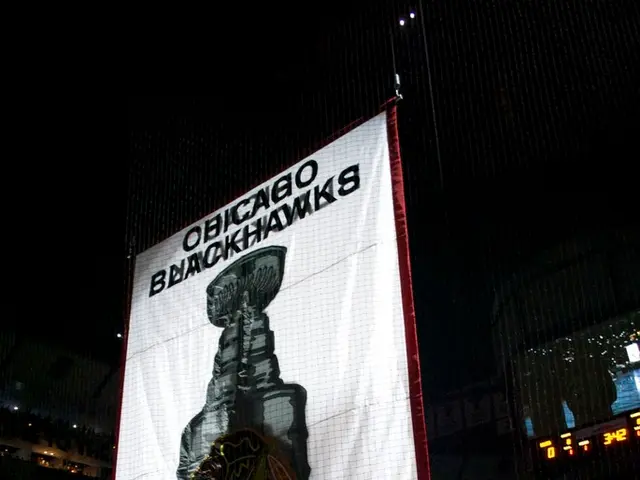Brevis's Fumblin' Fiasco: Unraveling the Controversy Surrounding Dewald Brevis's Dismissal in the IPL
IPL 2025: Preventing Debatable Decisions like Dewald Brevis's LBW vs RCB
Chasing a mammoth 214 against RCB in the 52nd match of the Indian Premier League, Chennai Super Kings were cruising at 171-2 in the 17th over. But Lungi Ngidi's (3-30) dismissal of Ayush Mhatre, followed by Brevis stumbling into a full toss aimed at the pads, set off a chain of events that left fans and experts questioning the IPL's Laws and Playing Conditions.
The Ballad of Brevis
As the ball rolled towards point, Brevis and Ravindra Jadeja hightailed it for a leg-bye. Ngidi picked up the ball and threw at the non-striker's end. The ball hit the stumps, but by then, the umpire had raised his finger. Brevis was greedy for a review, but the decision to send him back to the pavilion had already been made, and the review window had closed—15 seconds had elapsed since the umpire's fateful call.
The CSK's Chagrin and the Umpire's Verdict
An animated discussion between Brevis, Jadeja, and the umpires (Mohit Krishnadas and Nitin Menon) ensued, but the decision was not overturned. When quizzed about the dismissal post-match, CSK head coach Stephen Fleming said, "As soon as you're given out, I understand the timer starts. There was a fair bit eaten up with the play still being completed, and whether they just ran out of time... In the umpire's view, it did." It was worth noting that the official broadcasters clocked Brevis's review at 25.2 seconds, while the giant screen on the ground did not run a countdown timer that Brevis could have referred to.
The IPL Playing Conditions
Clause 3.2.2 of Appendix D of the IPL Playing Conditions states that the total time elapsed between the ball becoming dead and a review request is no more than 15 seconds. If the umpires believe that a review has not been made within the time limit, they will decline the request. Given that the ball became dead at the moment the umpire ruled Brevis out, the officials were within their rights to dismiss Brevis as tardy in requesting a review.
A Time for Change?
The incident raised valid concerns about the unfair timing and the loss of runs scored before the ball became dead. One challenge lies in the batter's dilemma: whether to risk running or calling for a review before dashing to the other end. Another concern pertains to the conceded runs, which do not count if the on-field umpire rules the batter out, irrespective of whether the decision is overturned on review.
The solution might lie in extending the review time to 30 seconds, allowing batters a more realistic opportunity to assess the situation and decide on a review. Furthermore, if the review is successful and the dismissal is overturned, the batter could retain any runs scored up to the review request. However, this could complicate the game's flow and require careful consideration of how it interacts with existing rules and regulations.
By making these adjustments mindfully, the IPL can balance speed with accuracy, potentially creating a more fair and engaging cricket experience. So here's to Brevis, the unwitting catalyst for much-needed change. As he learned, sometimes being in the wrong place at the wrong time can lead to the right outcome.
Sentence 1: Despite Ravindra Jadeja's attempt to score a leg-bye during the IPL match, Dewald Brevis was controversially dismissed due to a contravention of the IPL's Playing Conditions, as his review request was made 2.8 seconds late.
Sentence 2: The time constraint for requesting a review in cricket, set at 15 seconds, became a point of discussion in the cricket world after Brevis's dismissal during the Chennai Super Kings' game against RCB.
Sentence 3: Cricket fans and experts have proposed extending the review time limit to 30 seconds to provide a more realistic opportunity for batters to assess the situation and potentially avoid dismissals like the one suffered by Dewald Brevis in the Indian Premier League.


![Below-par artifact showcases a disturbing tableau: a sinister figure, shadowy and menacing, overseeing a chaotic scene filled with drugs, sex, and violence. Noticeable figures include [Name] and [Another Name] in various states of disarray, adding to the overall air of depravity. Controversy arises over Dewald Brevis's dismissal by Chennai Super Kings against Royal Challengers Bengaluru, sparking debates over cricket's rules and guidelines. What potential solutions exist to address this issue?](https://asb-media.info/en/img/2025/05/04/1307841/jpeg/4-3/1200/75/image-description.webp)






